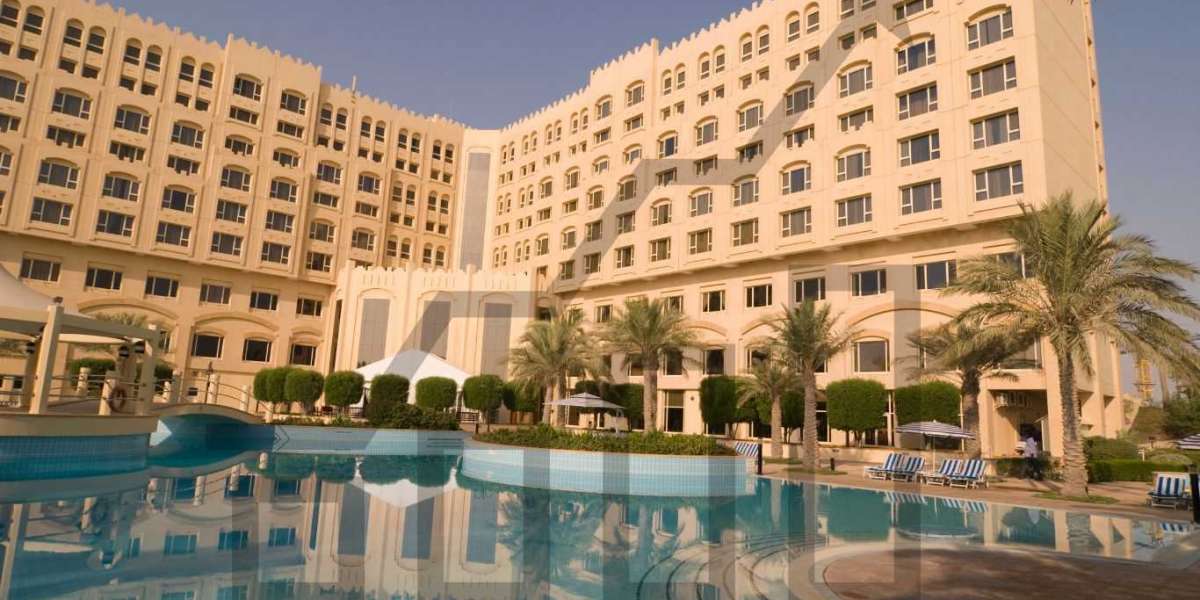The hotel industry in Mexico reached a value of approximately USD 13.74 billion in 2023. The market is projected to grow at a compound annual growth rate of 8.2% between 2024 and 2032, reaching a value of USD 27.93 billion in 2032.
Government Policies and Incentives:
Mexico's government has implemented various policies and incentives to promote tourism and hospitality development across the country. These include tax incentives, grants, and subsidies aimed at attracting investment in hotel construction, renovation, and infrastructure projects. Additionally, regulatory reforms and streamlined permitting processes facilitate hotel development, reducing bureaucratic barriers for investors and developers. Government-sponsored marketing campaigns and promotional initiatives showcase Mexico's diverse attractions and encourage tourism growth, driving demand for hotel accommodations nationwide.
Infrastructure Development:
Infrastructure development plays a crucial role in supporting Mexico's hotel industry growth, enhancing accessibility to tourist destinations and improving the overall visitor experience. The government's investment in transportation infrastructure, including airports, highways, and public transportation systems, facilitates travel within Mexico and connects remote destinations to major tourist hubs. Strategic investments in airport expansion and modernization projects, such as the Mexico City International Airport and Cancun International Airport, accommodate growing passenger volumes and stimulate tourism demand. Moreover, investments in urban development, public spaces, and cultural attractions contribute to the appeal of Mexico's cities as tourist destinations, attracting business travelers and leisure tourists alike.
Regional Tourism Promotion:
Mexico's hotel industry benefits from regional tourism promotion efforts that highlight the unique attractions and cultural heritage of different states and regions. State governments collaborate with tourism boards, industry associations, and local stakeholders to develop destination marketing strategies, events, and promotional campaigns tailored to their respective regions. For example, the Riviera Maya Tourism Board promotes the region's pristine beaches, ancient Mayan ruins, and eco-adventure activities to international travelers, while the Jalisco Tourism Board showcases the vibrant culture, gastronomy, and tequila heritage of the state. These targeted marketing initiatives raise awareness of Mexico's diverse tourism offerings and drive visitation to specific destinations, stimulating demand for hotel accommodations.
International Tourism Partnerships:
Mexico's hotel industry benefits from international tourism partnerships and collaborations that promote cross-border travel and exchange. Collaborative initiatives between Mexico and other countries, tourism organizations, and global hospitality brands facilitate marketing, investment, and tourism development opportunities. Bilateral agreements on visa facilitation, air connectivity, and tourism promotion enhance travel accessibility and attract visitors from key source markets. Moreover, joint marketing campaigns, cultural exchange programs, and international events such as trade shows and festivals promote Mexico's tourism brand and generate interest in its hotels and destinations on the global stage.
Sustainable Tourism Certification and Accreditation:
Sustainable tourism certification and accreditation programs play a vital role in promoting responsible tourism practices and environmental stewardship within Mexico's hotel industry. Certification schemes such as EarthCheck, Green Globe, and Rainforest Alliance verify hotels' compliance with sustainability criteria related to energy efficiency, waste management, water conservation, and community engagement. Hotels that meet these standards demonstrate their commitment to environmental sustainability and social responsibility, appealing to eco-conscious travelers and enhancing their competitiveness in the market. Government support for sustainable tourism initiatives and partnerships with industry stakeholders facilitate the adoption of best practices and the integration of sustainability into hotel operations and management.
All-Inclusive Resort Model:
Mexico's hotel industry is renowned for its thriving all-inclusive resort model, which offers guests a comprehensive vacation experience inclusive of accommodation, meals, beverages, and entertainment. All-inclusive resorts are particularly popular in coastal destinations such as Cancun, Riviera Maya, and Puerto Vallarta, where they cater to both domestic and international tourists seeking hassle-free vacations. This model provides a predictable and convenient vacation option for travelers, contributing to repeat visitation and loyalty. Furthermore, all-inclusive resorts often stimulate local economies by creating employment opportunities, sourcing goods and services from local suppliers, and supporting community development initiatives.
Luxury Hotel Segment:
Mexico's luxury hotel segment continues to attract significant investment and demand from affluent travelers seeking upscale accommodations and personalized service. Luxury hotel brands and boutique properties offer premium amenities, exclusive experiences, and bespoke services tailored to discerning guests. Iconic properties such as the Four Seasons Resort Punta Mita, Rosewood Mayakoba, and Chablé Yucatán exemplify Mexico's luxury hospitality offerings, combining world-class design, hospitality, and gastronomy with unique cultural and natural settings. Luxury hotels contribute to Mexico's reputation as a premier destination for luxury travel and attract high-spending visitors who contribute to the local economy through luxury shopping, dining, and recreational activities.
Medical Tourism and Wellness Retreats:
Mexico's hotel industry is tapping into the growing market for medical tourism and wellness retreats, offering specialized accommodations and services for health-conscious travelers seeking relaxation, rejuvenation, and medical treatments. Wellness-focused resorts and spa retreats leverage Mexico's natural assets, including thermal springs, mineral-rich waters, and ancient healing traditions, to provide holistic wellness experiences. Medical tourism facilities, including hospitals, clinics, and wellness centers, partner with hotels to offer accommodation packages for patients seeking medical procedures such as cosmetic surgery, dental treatments, and wellness therapies. This synergy between healthcare and hospitality enhances Mexico's appeal as a destination for wellness tourism and medical travel, contributing to the diversification of the hotel industry and supporting economic growth in the healthcare sector.
Cultural and Heritage Tourism:
Mexico's rich cultural heritage and historical attractions are a draw for travelers interested in cultural tourism, heritage exploration, and immersive experiences. Historic cities such as Mexico City, Oaxaca, and Guanajuato boast UNESCO World Heritage Sites, colonial architecture, and vibrant cultural traditions that attract cultural enthusiasts and history buffs. Boutique hotels, heritage properties, and boutique lodgings offer authentic accommodations that reflect the local culture and heritage, providing guests with an immersive and memorable experience. Cultural tourism initiatives, including guided tours, cultural festivals, and artisan workshops, showcase Mexico's diverse cultural identity and promote sustainable tourism practices that preserve and celebrate the country's cultural heritage for future generations.
Adventure and Ecotourism:
Mexico's diverse geography, ranging from lush rainforests and pristine beaches to rugged mountains and desert landscapes, offers abundant opportunities for adventure and ecotourism experiences. Adventure seekers and nature enthusiasts flock to destinations such as Chiapas, Baja California Sur, and the Copper Canyon for outdoor activities such as hiking, snorkeling, zip-lining, and wildlife spotting. Eco-friendly lodges, ecolodges, and sustainable resorts cater to eco-conscious travelers seeking environmentally responsible accommodations that minimize their carbon footprint and support conservation efforts. Adventure tourism operators, national parks, and protected areas collaborate with hotels to offer immersive nature-based experiences that promote environmental education, conservation awareness, and sustainable tourism practices.







